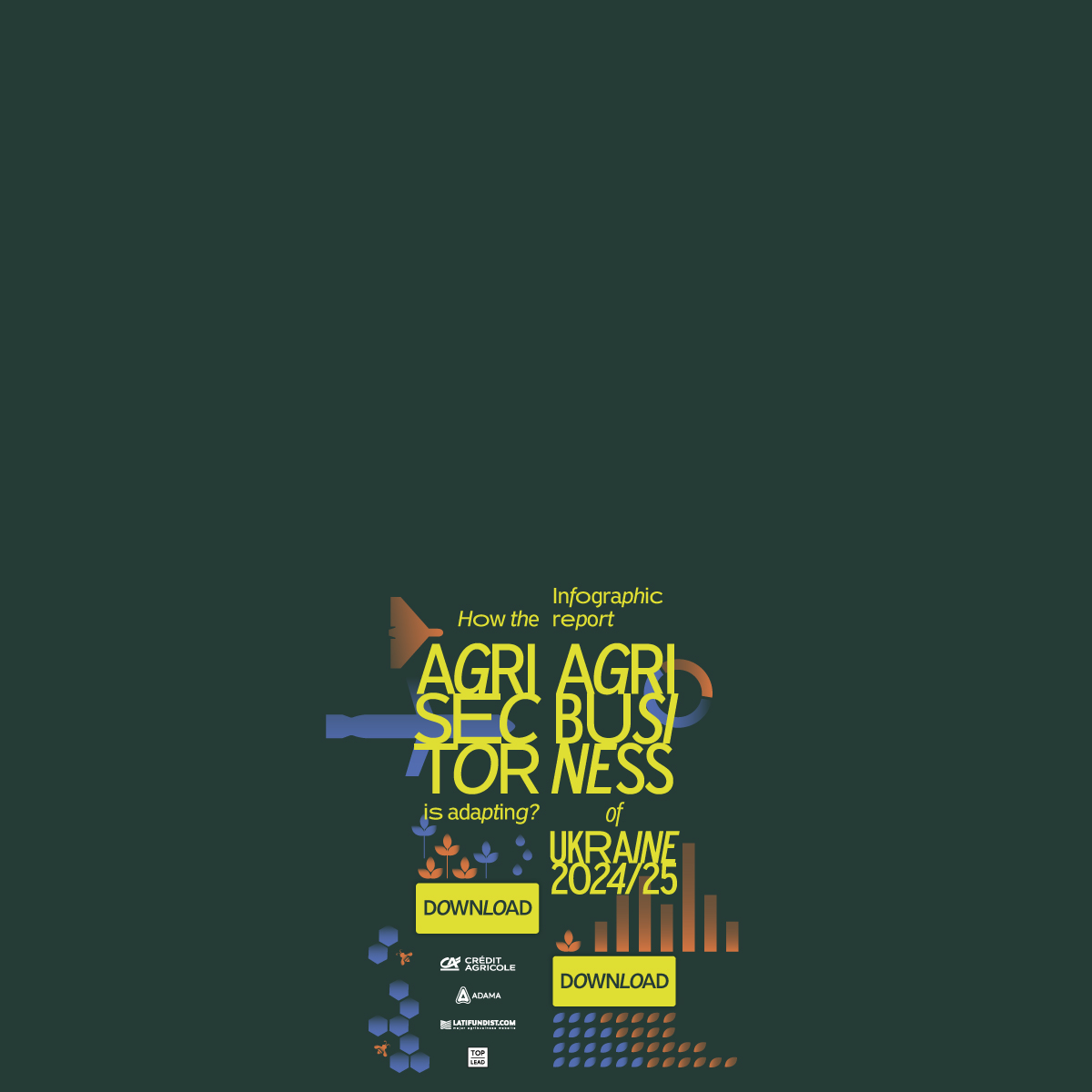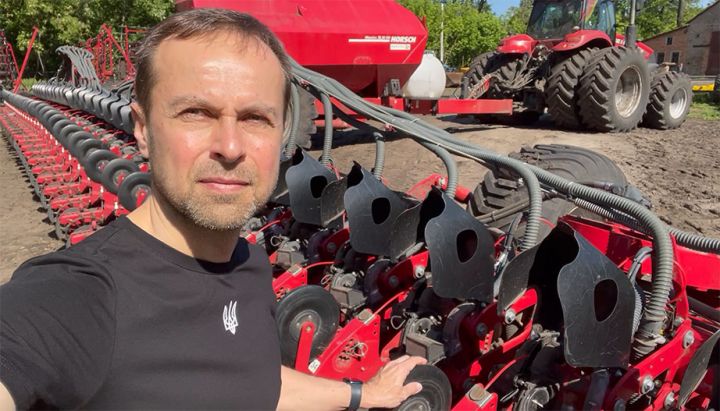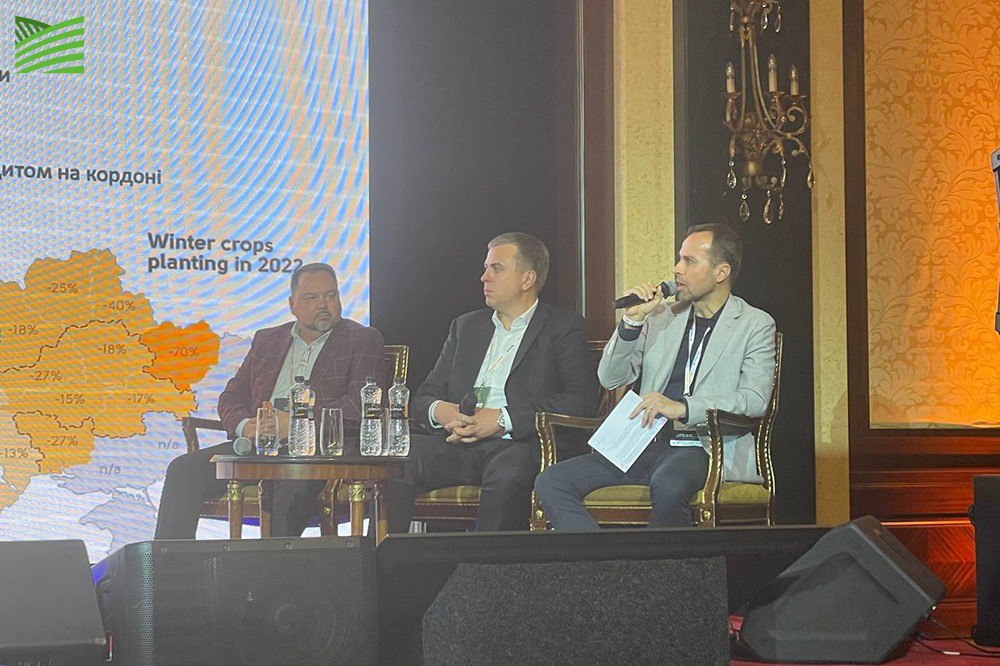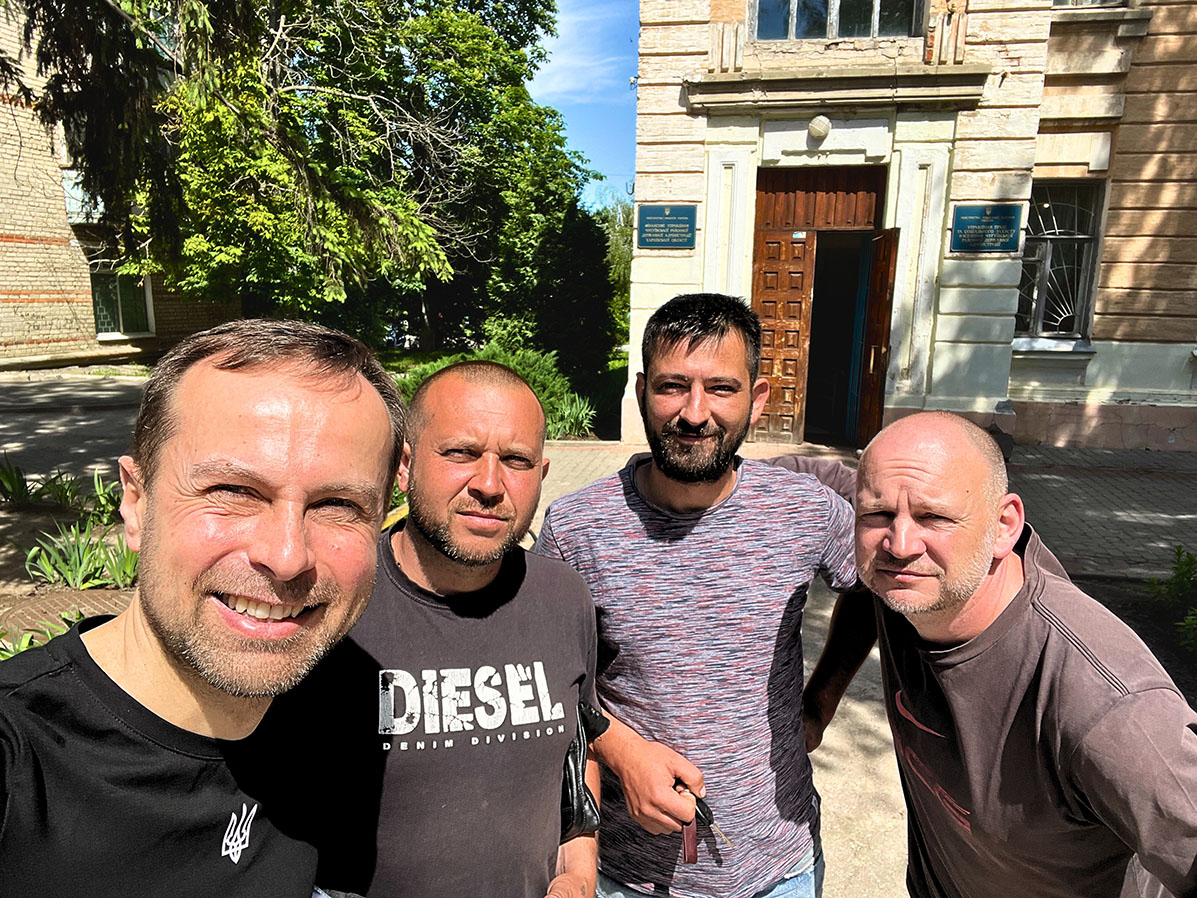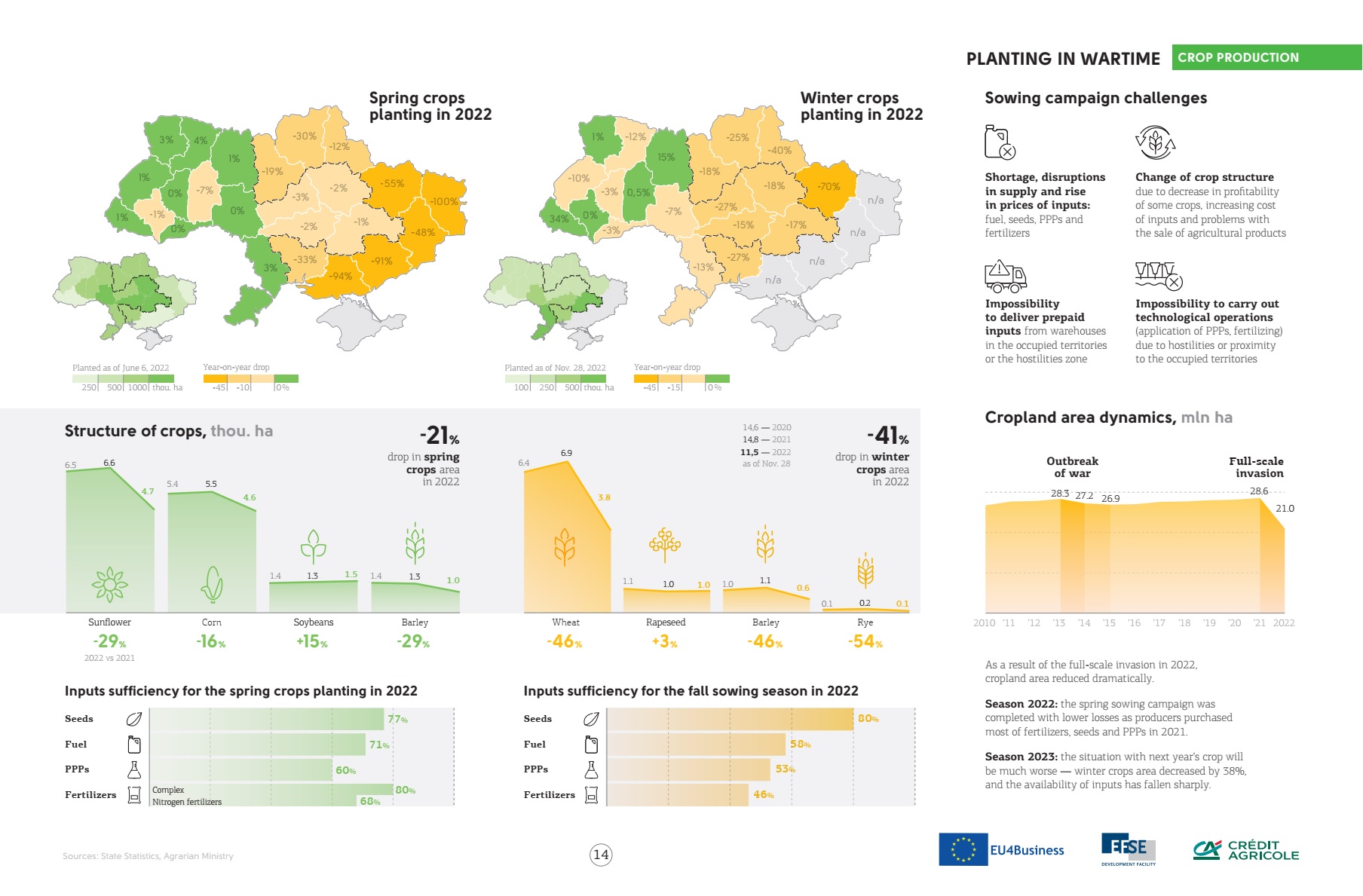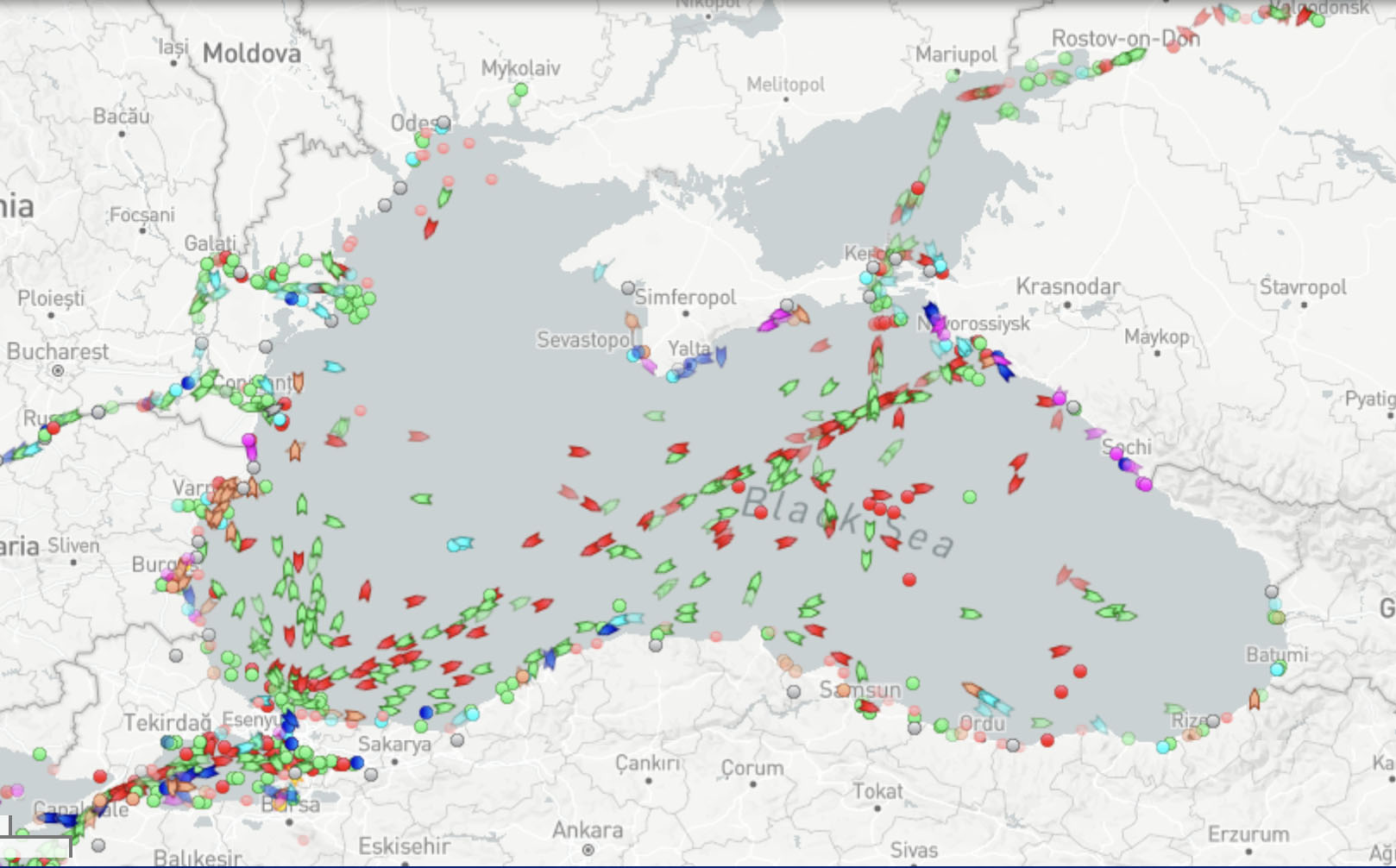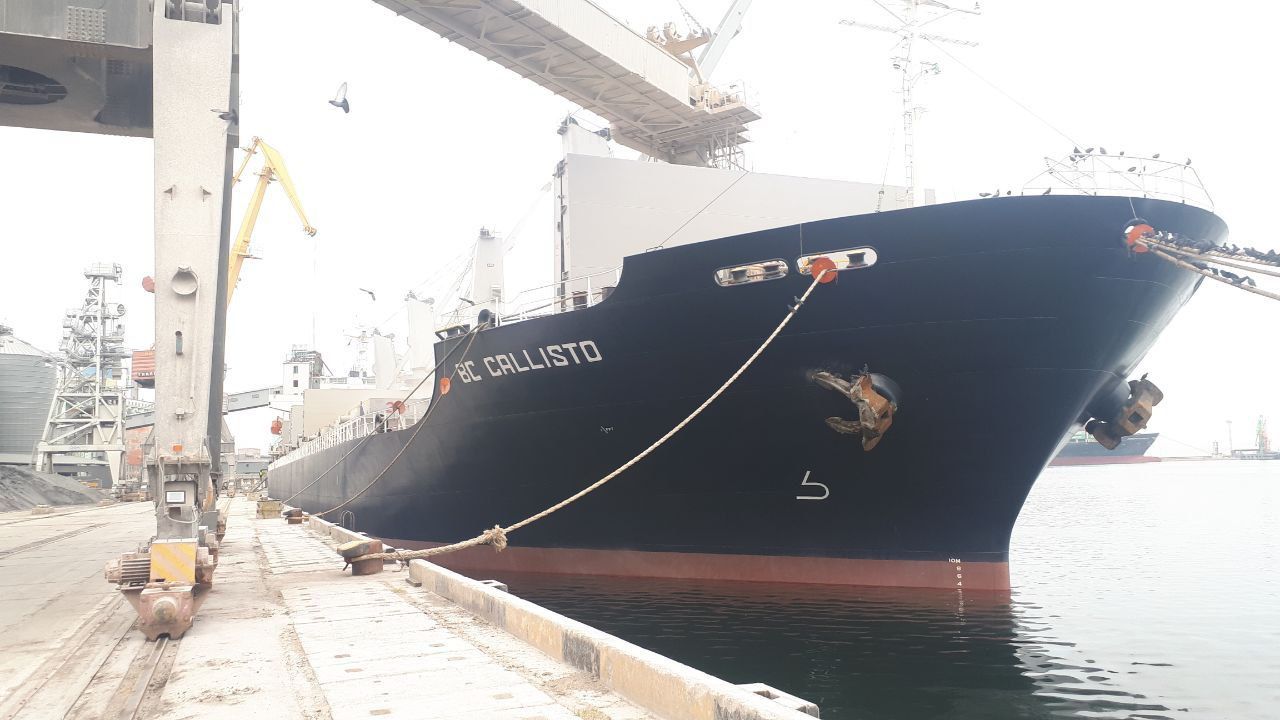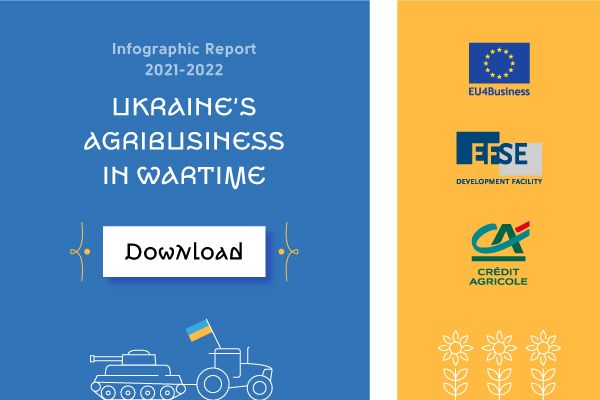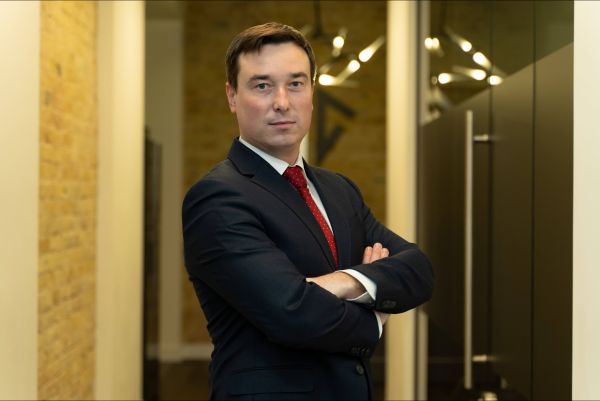Petr Krogman: It’s Much Like Ukraine’s Prison, Asking russia Every Two Months to Extend the Grain Deal
Petr Kroghman has spoken to the Czech media more than 100 times since February 24, 2022. The Chairman of the Board of Directors of Agromino regularly explains to the government and media in his homeland what is happening in Ukraine, how the local business is coping with the war and why Ukrainian grain had no impact on the fall in European prices.
This is Petr's first interview with the Ukrainian media since the start of the full-scale invasion. We are speaking in Ukrainian, which he learned in just two years. His colleagues joke that he even falls asleep listening to podcasts in Ukrainian.
Agromino experienced the war in every sense. Last year, the company's Kharkiv cluster was temporarily occupied, and there are fields that are still mined. Despite this, the holding continues its operations. Most of the 16,000 hectares in the east of Kharkiv region were planted. Petr says that small farmers, watching the company sowing, started planting themselves. They thought Agromino is big, it must know something, it has information that everything will be fine. "In fact, we knew nothing — we just wanted to work," he adds.
At the Grain Ukraine 2023 conference held in late May, his speech was perhaps the most impressive. Petr suggested that Ukraine had to withdraw from the grain deal because it benefits russia only. Why? He explains this and much more in the interview.
Latifundist.com: How did the company complete the sowing campaign? At the Grain Ukraine conference, you mentioned that the east of Kharkiv region is barely sown. Is it related only to mining or to a combination of factors, including complex and expensive logistics?
Petr Krogman: All our fields were sown on time, except minor those in the liberated territories, which are mined. Even the enormous commitment of our people there could not overcome all the problems caused by the occupation. First of all, it is the destroyed infrastructure — broken bridges, railways, roads, farms and warehouses. This incurs additional costs, especially transport costs.
Another problem is the lack of people who are currently in the western part of Ukraine or in the EU because it is difficult and risky to live, travel and work in the liberated territories.
The third set of problems are mined fields and roads, plus restrictions from the authorities and the military. And unfortunately, artillery shells sometimes fall 2 km from our fields when we are working in them. All of these are the reasons why 70-80% of the areas remained unsown in the liberated territories for the harvest 2023 overall in Ukraine.
Latifundist.com: Why do you continue working there in such conditions?
Petr Krogman: We want to keep life in those areas — pay our people salaries, support our suppliers. All this will contribute to people not leaving those areas. We also don't want the fields to become overgrown with weeds and woody plants. This would further complicate future cultivation and demining. Already today, we can see that the neighbours' fields can hardly be tilled. Overall Ukrainian statistic of the sown area in deoccuppied area is terrifying. Every unsown hectare means people who will not have jobs and Ukraine will be weaker due to a lack of export and collected taxes.
Latifundist.com: Do you think the government will do anything about it?
Petr Krogman: I visited UkraineRecovery Conference in London on June 21 and 22 and Deputy Minister of Agriculture Taras Vysotskiy declared that the Ministry of Agriculture is hardly working to assure direct payments per hectare for deoccupied regions. It shall start in September based on the electronic agricultural register. Now Ukraine has very professional people in Ministry who have real experience in the agriculture process and know that you need sources for sowing. They also know how destructive interruption of activity is. One skipped year will cost you efficiency for 10 years ahead. It is like driving a car: if you stopped one time, you need big time and efforts to gain previous speed. And when the battery is not used for a long time, you can't even start it without external assistance.
I suppose the aim is to compensate farmers for their last year's losses and plant winter crops for next year. I, therefore, believe that the Ukrainian government understands that deoccupied regions serve as a buffer zone and that their existence and economic life bring invaluable profits to Ukraine. Unfortunately, in their current state, they suffer the most. And this is one of the reasons why Ukraine can lose its East and the war. Western Ukraine would become the new buffer zone then.
Latifundist.com: Wouldn't subsidized and guaranteed loans help the situation?
Petr Krogman: These can help in regions where agriculture is profitable. In deoccupied regions, it would only result in bigger debts for local agricultural companies. Actually, the government already tried to help agriculture this way in 2022. And banks logically used loan guarantees and reduced interest programs preferably in areas with less risk and lower transportation costs, i.e. in western Ukraine.
Latifundist.com: At the aforementioned conference, you stated that Ukraine should withdraw from the grain deal because it is more favourable to russia. Could you please elaborate on this idea?
Petr Krogman: It is clear that Ukraine's negotiators did their best, but the grain agreement was prepared a year ago when Ukraine was weaker than today and the capacity of alternative logistics routes was minimal. russia exports 20 times more via the Black Sea than Ukraine. This deal is humiliating for Ukraine now. Ships with Ukrainian commodities are checked and russian ships are not. That's why prices in ports are a third lower than elsewhere. Therefore, Ukraine loses a third of its GDP which is 50 USD per every ton of grain, which in current prices of the grain is same effectively like every third ship is automatically sunk. Look at the MarineTraffic. Only one party that really gains from the current status quo is russia.
Latifundist.com: Then, what is the alternative to the 'grain corridor'? After all, we have plenty of problems with grain exports on our western borders.
Petr Krogman: It is clear that exporting to the EU over the western border is not the right solution — on the contrary, it harms Ukraine because it provokes EU farmers. That is why Ukraine is losing popularity. We must realize that agriculture will be the biggest obstacle to Ukraine's entry into the EU. And it will get worse if more commodities cross the western border.
Latifundist.com: You tried to explain to the Europeans that the reasons for the fall in grain prices are related to the global situation, not to Ukraine. Did you manage to convey this message? Because the repeated protests and quality claims against Ukrainian grain in different countries raised suspicions that it was a political game and a "russian trace".
Petr Krogman: Exactly. russian propaganda knows very well how to misuse Solidarity Lanes. We had a hard time in the Czech Republic keeping an open market in the last campaign against imports from Ukraine. I had to speak in the Czech parliament to defend Ukraine and free trade. I went to the media and I also passed information to the EU parliament to grant money to Ukraine for compensation of transport and port prices. Luckily, there is a reasonable government and president in the Czech Republic, who understand and support all this. Even all 3 major agrarian organizations of Czech farmers support these compensations to redirect Ukrainian commodities into ports.
Latifundist.com: What is the solution?
Petr Krogman: Therefore, the solution is to cancel the current grain agreement, which is very humiliating for Ukraine. Thanks to this agreement, russia is slowly suffocating Ukraine. Unfortunately, Stockholm syndrome can already be observed in the behaviour of some interested subjects — the current state of dependence and regulation suits them because it brings them some rents. Ukraine needs to emancipate and exclude russia from the agreement, and not beg for extensions.
Latifundist.com: But is it real?
Petr Krogman: Yes, for several reasons. First of all, it is necessary to appreciate the Ukrainian government for creating a fund of UAH 20 billion to cover the damage of ships sailing outside the grain deal. This will motivate shippers to transport grain after the grain corridor closes. This is the right role of the state — to compensate for negative externalities that the market cannot pay for/solve.
The second major message is that russia's technical and human misery has already shown itself. Today we can see that russia does not even control its land and with a few tanks it is possible to reach moscow.
It is also important that the transport fleet is not Ukrainian — and the Russians will not really shoot at Turkish or Chinese ships.
Last but not least, the removal of state regulation will allow new subjects to enter the Black Sea transport business. Some carriers will accept the risk, some will not. It will be the same as with farming in liberated areas. Some farmers have fled and some are working under shelling. Overall, there will be more carriers than today when the russians are handing out permits and checking ships. And believe me, the whole process will be healthier and cheaper with higher prices in ports for Ukrainian farmers.
Latifundist.com: Why did we get to this situation?
Petr Krogman: Unfortunately, the UN or Western states and politicians did not have sufficient experience with russia. They couldn't imagine that someone could programmatically lie and respect only those who also lie. And that someone can feel superior thanks to lies. But the European attitude is changing already. Of course, russia is the best in the world at lies, disinformation and bluffing. But that only works for them as long as someone believes them. So, it is necessary to realize the basic thing — trusting the russians means not valuing yourself.
Latifundist.com: Let's go back to Ukraine. What other problems do you solve in your business?
Petr Krogman: I must say that Ukraine has made big progress in minimizing corruption but there are still regions like Bila Tserkva, where police, courts and administration are under the control of local mafia who can easily deprive anybody of assets misusing their powers in their own favour. The best Ukrainians are dying on the battlefield, while the local mafia continues its profitable business and corruption, destroying Ukraine from the inside. Nobody can rely on justice in affected regions.
Latifundist.com: Why do you speak about the local mafia and not oligarchs?
Petr Krogman: Because large oligarchs are already under the spotlight. The media and government are dealing with them already. But local mafias are tolerated.
Latifundist.com: Did you experience that personally? Can you give me some examples?
Petr Krogman: All my comments are based on my own experience. We are active in many Ukrainian regions, so we can say, where the situation is worst. Unfortunately, I must state that Bila Tserkva is an absolute winner in this sad category.
For example — we experienced illegal deregistration of our lease agreements based on falsified signatures or signatures of deceased people, all processed by black registrators. The clear beneficiary of the scheme is a local raider active in local politics who within one day re-registered the lease in his favour.
No one was punished for this scheme and the beneficiary continues to happily operate on the land for 6th year already. All this despite being engaged in hundreds of civil lawsuits and us initiating criminal cases. Moreover, that same person recently informed us that he will harvest crops rightfully sown by us.
We understand that the local police will do nothing so we will again have to spend years at court. It is really shameful that none is done with this type of people. Fortunately, there are also cases where we already achieved success and reversed the lease registrations but the lack of activity by police and obstacles at the local level are shameful.
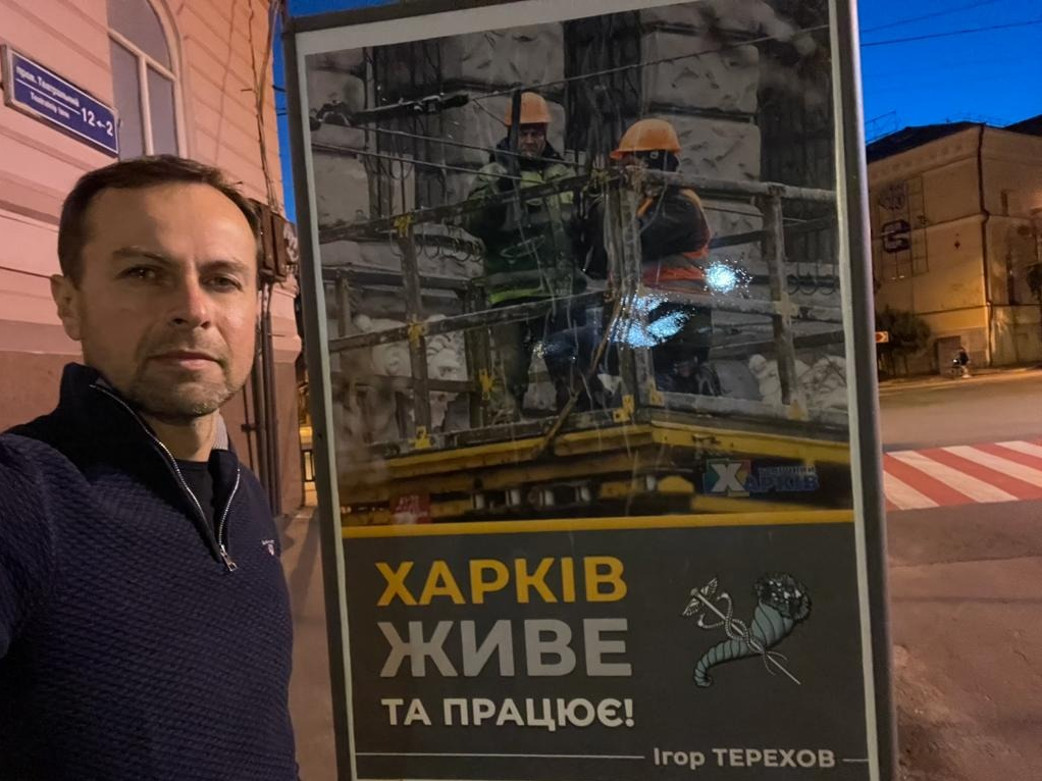
Latifundist.com: So, finally there is justice, is there not?
Petr Krogman: Yes, after a long time and hundreds of court hearings the crooks always lose. But what is really dangerous for Ukraine is the fact that it lowers its chances to join the EU. Moreover, local oligarchs also endanger the future reconstruction of Ukraine and the financial funds for this. With their knowledge of the system's defects and their networks (including police and courts), local oligarchs could be the ultimate beneficiaries of aid coming to new Ukraine. This would shape Ukraine's development in a manner that none of us would desire.
Latifundist.com: Back to practical agriculture. Has the harvest started yet? What are the challenges and problems in this harvesting campaign?
Petr Krogman: Harvesting will start around July 10. In deoccupied regions, we will have problems with infrastructure. Due to destroyed bridges, we will have to transport all grain by trucks 200 km from the fields directly to our silo in the west of Kharkiv. Another problem will be a slower harvest because of the lower availability of spare parts. Some service companies don't even want to drive east of the North Donets River.
Latifundist.com: Have you changed the cropping plan?
Petr Krogman: Especially in the de-occupied territories, we planted crops that have a lower yield because logistics is expensive. It was mainly mustard and sunflower. We did not sow corn there at all and only the necessary minimum of wheat.
Latifundist.com: After February 24, what things did you start to look at differently? What things did you reassess?
Petr Krogman: Oh, you know my stays in Ukraine become much more exciting.
But without a joke. It is a well-known phrase — "Ukraine never loses the chance to lose a chance." But now is a turning point in history when too much is at stake. Too many lives were lost. We are obliged to build a better Ukraine for all the people that sacrificed their lives.
Nothing is more valuable than life and freedom itself.
Kostiantyn Tkachenko, Latifundist.com
